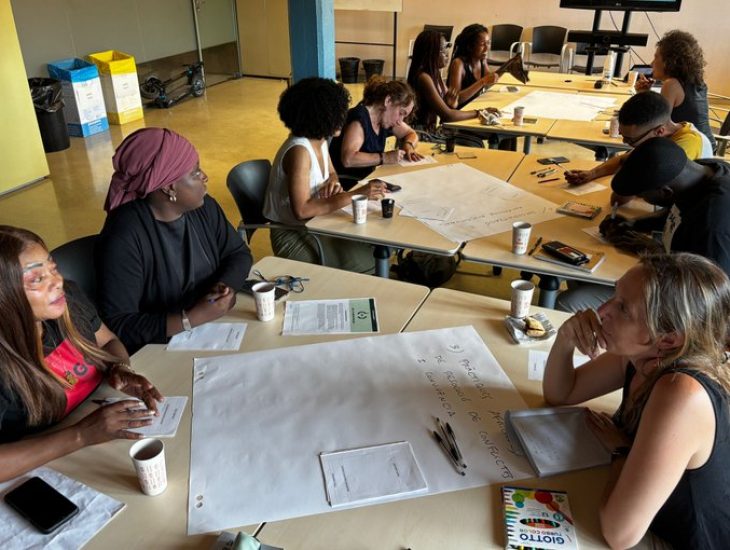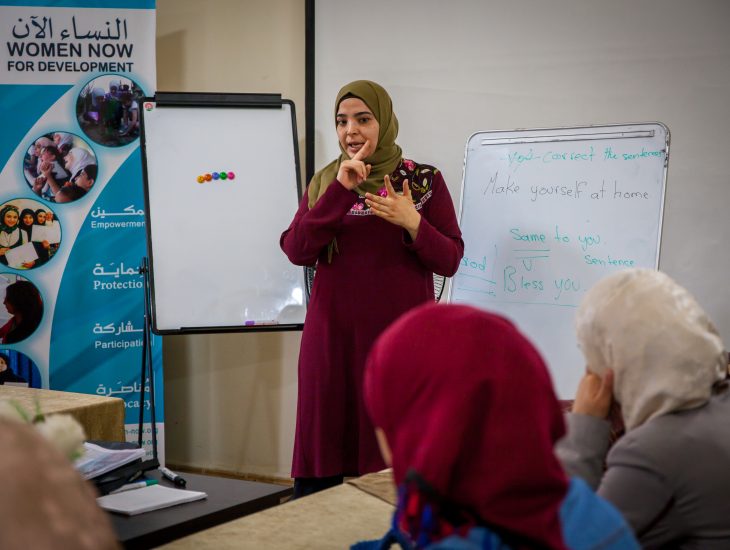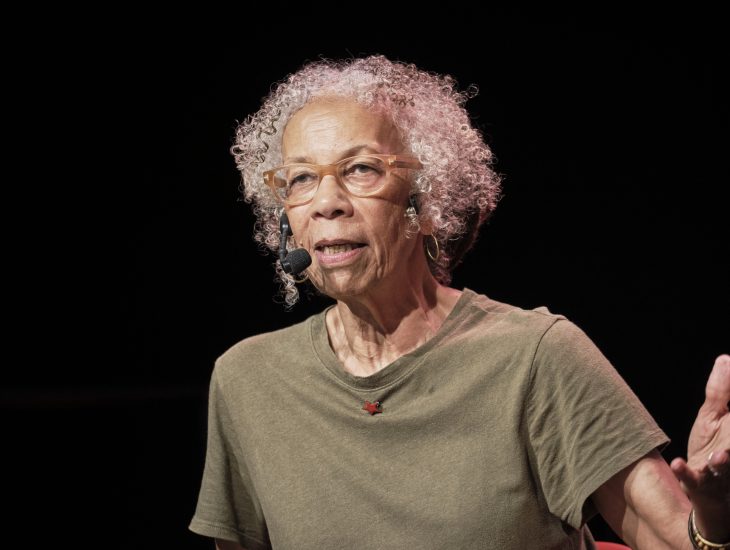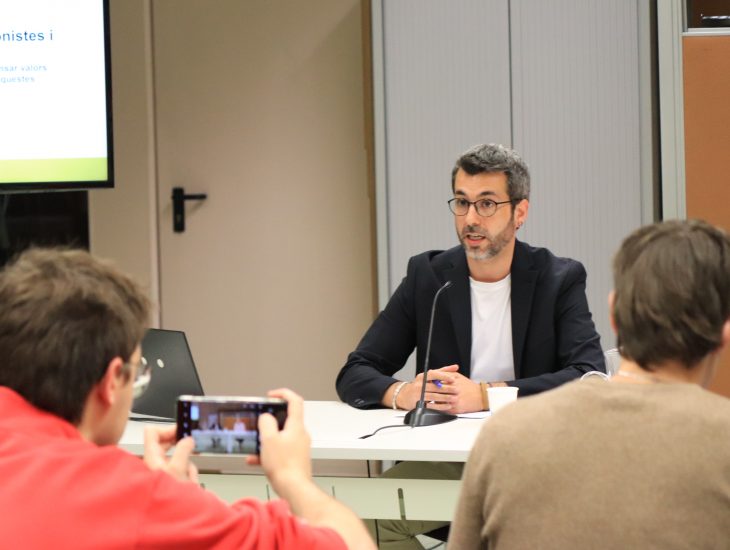The International Catalan Institute for Peace (ICIP) presented the ICIP Peace in Progress Award 2018 to the Mexican organization Cauce Ciudadano in a ceremony that took place in the Parliament of Catalonia on the evening of Tuesday 12 March. The event was attended by representatives of institutions and organizations dedicated to the promotion of peace and linked to Mexico and Latin America in general. Cauce Ciudadano, an organization founded in 2000 by young people who had been pandilleros (members of criminal gangs) has been awarded “for its work in the prevention of violence and the construction of peaceful alternatives for youth in settings characterized by crime, especially drug trafficking.”
The ceremony was presided over by the president of Parliament, Roger Torrent; the Minister for Foreign Action, Institutional Relations and Transparency, Alfred Bosch; and ICIP president Xavier Masllorens. Masllorens began his speech by expressing “dismay at the democratic decline being experienced in various places in the world, including Spain, and concern for every person who accepts cutbacks in rights and freedoms in the name of security.” He praised the work of Cauce Ciudadano for “providing a preventive and positive response to violence, as opposed to the repressive and securitizing measures of public authorities.”
A video on the history of Cauce Ciudadano was screened during the event and the Colombian journalist and writer Laura Restrepo, author of the commentary, highlighted “the organization’s commitment to peace and reconciliation, moral and civic education, reconciliation between the parties in conflict, reparation for damages, non-repetition and respect for the memory of victims.”
In her award acceptance speech the director of Cauce Ciudadano, Erika Llanos, popular educator and the first female member of the organization who is not a former pandillera, expressed her gratitude for the award and highlighted the commitment of Cauce Ciudadano to “transform fear and re-humanize daily life,” with its work both in schools and in prisons, and “to speak with those involved in crime and bring together victims and victimizers,” with a special emphasis on the fight for gender equality and the recognition of women. For his part, the founder of the organization, Carlos Cruz, in a moving speech, defended “a narrative of justice and peace beyond security” to reverse the climate of violence and crime in Mexico, and the need to “listen and love” to build peace and to organize at the social level to create “peace economies.” Cruz also dedicated a few words to Catalan politicians in prison and in exile, expressing his desire for their return home, the same desire he has for the thousands of disappeared people in Mexico.
In the closing ceremony, the Minister for Foreign Action, Alfred Bosch, defended dialogue and justice to build peace and he highlighted the work of Cauce Ciudadano to “make the world a better place.” The president of Parliament, Roger Torrent, evoked the memory of the politicians in prison and in exile, especially Carme Forcadell and the conseller Raül Romeva, “a woman and a man of peace, builders of peace, accused of violent uprisings that never happened.” Torrent recalled that “peace is not just an absence of violent attitudes; peace is built against repression, impositions and threats.”
Previously granted
The first edition of the award in 2011 recognized the struggle of conscientious objectors and “insubmisos” (people who refuse to do military service or any substitute social work) represented by Pepe Beúnza, the first conscientious objector to compulsory military service for ideological reasons in Spain. The same year, in an extraordinary edition of the award, the Parliament of Catalonia was honored for representing the continuity and legacy of the institutions “Pau i Treva” and “Consolat de Mar.”
Then, in 2012, the ICIP Award was granted to five Madres de Soacha (Mothers of Soacha) for their work in favor of peace and human rights in Colombia. The next year the award was granted to the ex-general born in Belgrade, Jovan Divjak, for his courage in the defense of Sarajevo during the Balkans War and his work in favor of the victims of that conflict.
In 2014, honored the Women’s International League for Peace and Freedom (WILPF) for its century-long involvement in the work of women for peace, while in 2015 was granted to the Capuchin friar Joan Botam, promoter of numerous initiatives linked to peace and ecumenism.
In 2016, the ICIP Peace in Progress Award recognized the work carried out by Peace Brigades International in the support and accompaniment of human rights defenders.
In the last edition of the award, in 2017, the ICIP recognized the activist Arcadi Oliveres, for his commitment and tireless dedication to the promotion of peace, social justice and human rights.
13.01.2019




